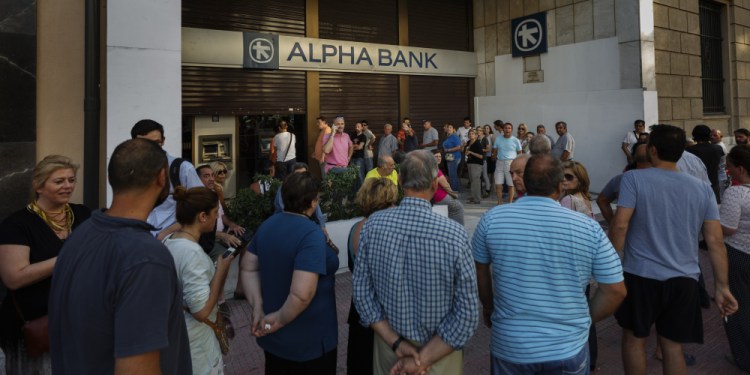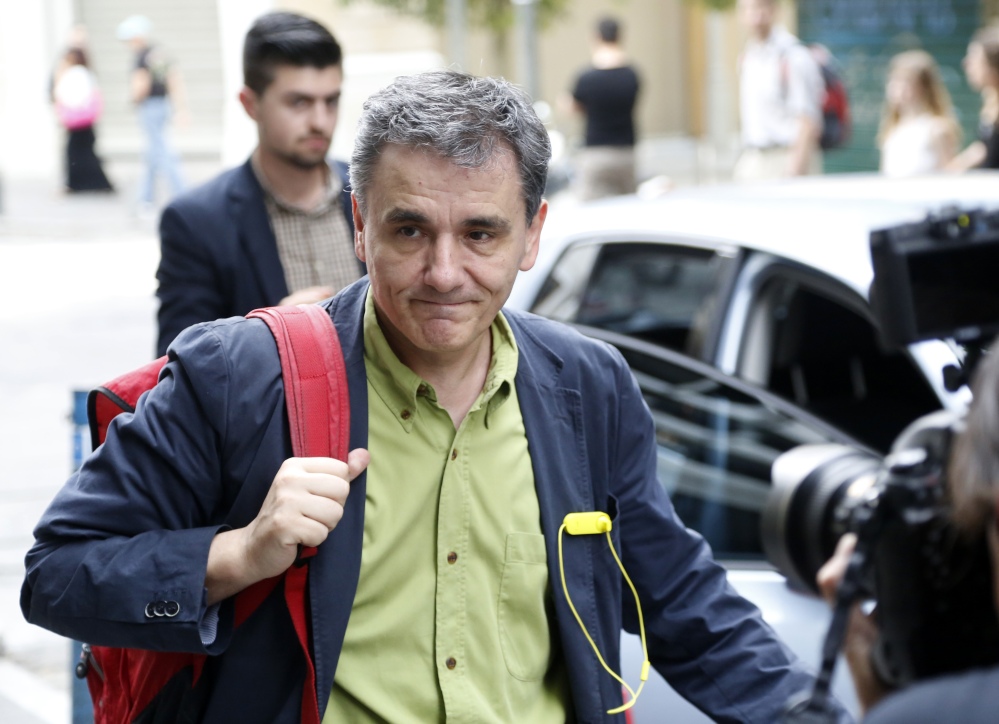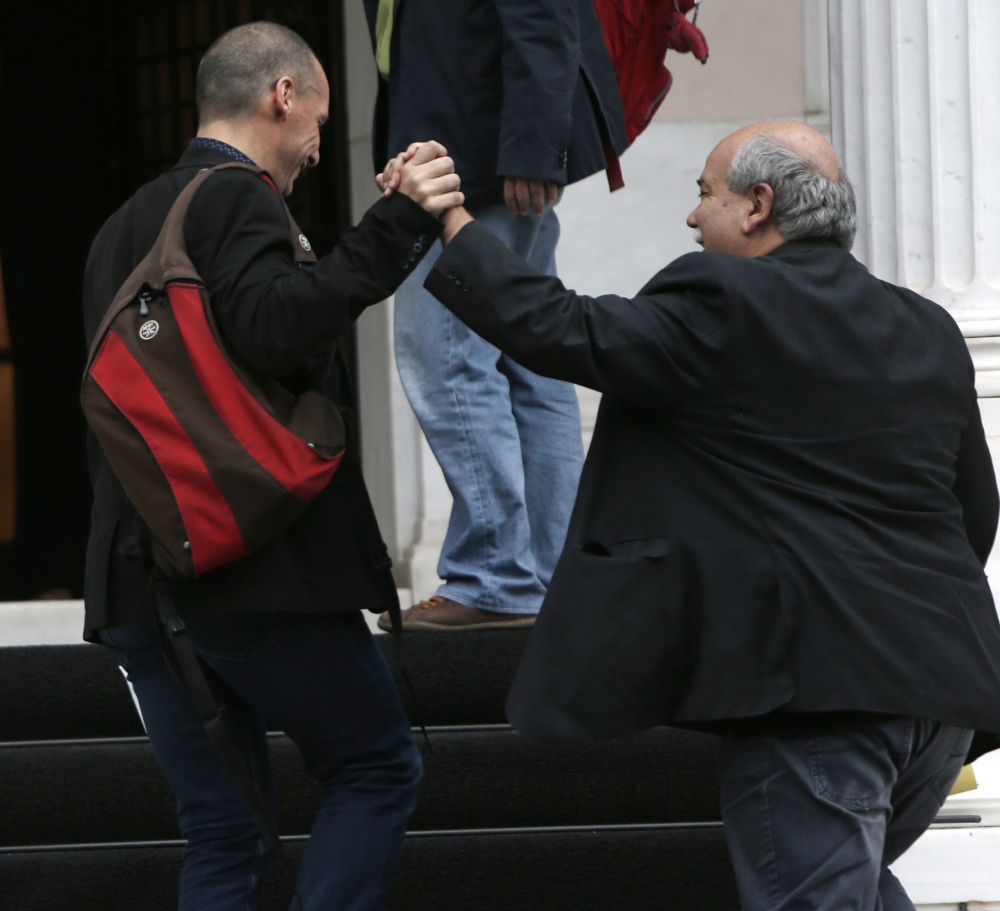ATHENS, Greece — Greece’s five-year financial crisis took its most dramatic turn to date Sunday, with the prime minister announcing Greek banks would remain shut indefinitely and restrictions would be imposed on cash withdrawals.
The decision came on the recommendation of the Bank of Greece, Prime Minister Alexis Tsipras said during a televised address to the nation. He didn’t immediately say what types of capital controls would be imposed.
The developments have thrown into question Greece’s financial future and continued membership in the 19-nation shared euro currency – and even the European Union.
For the past two days, Greeks have been rushing to ATMs to withdraw money across the country following Tsipras’ sudden weekend decision to call a referendum on creditor proposals for Greek reforms in return for vital bailout funds.
The government is urging Greeks to vote against the proposals, arguing that they are humiliating and that they would prolong the country’s financial woes.
The referendum decision, which was ratified by parliament after a marathon 13-hour session that ended in the early hours of Sunday, shocked and angered Greece’s European partners. The country’s negotiations with its European creditors have been suspended, with both sides accusing each other of being responsible.
Earlier Sunday, the European Central Bank decided not to increase the amount of emergency liquidity the lenders can access from the central bank – meaning they have no way to replenish fast diminishing deposits.
“It is now more than clear that this decision has no other aim than to blackmail the will of the Greek people and prevent the smooth democratic process of the referendum,” Tsipras said.
“They will not succeed. These moves will have the exact opposite effect. They will make the Greek people more determined in their choice to reject the unacceptable … proposals and ultimatums of the creditors,” he said.
The referendum is set for next Sunday. But Greece’s current bailout expires on Tuesday, and the $8 billion remaining in it will no longer be available to Greece after that date.
Without those funds, Greece is unlikely to be able to pay a $1.79 billion International Monetary Fund debt repayment due the same day.
Tsipras said he had renewed a request for the bailout to be extended by a few days to allow for the referendum – a request which was rebuffed during the weekend by Greece’s European creditors.
Tsipras gave no details of how long banks will remain closed or what restrictions will be placed on transactions. Two financial sector officials said the banks would likely remain shut for several days, and the Athens Stock Exchange would also not open on Monday.
Some European officials called for renewed efforts by both sides.
“We don’t know – none of us – the consequences of an exit from the eurozone, either on the political or economic front. We must do everything so that Greece stays in the eurozone,” French Prime Minister Manuel Valls told France’s i-Tele TV earlier Sunday.
“But doing everything, that means respecting Greece and democracy, but it’s also about respecting European rules. So Greece needs to come back to the negotiating table,” he said.
Copy the Story LinkSend questions/comments to the editors.





Success. Please wait for the page to reload. If the page does not reload within 5 seconds, please refresh the page.
Enter your email and password to access comments.
Hi, to comment on stories you must . This profile is in addition to your subscription and website login.
Already have a commenting profile? .
Invalid username/password.
Please check your email to confirm and complete your registration.
Only subscribers are eligible to post comments. Please subscribe or login first for digital access. Here’s why.
Use the form below to reset your password. When you've submitted your account email, we will send an email with a reset code.